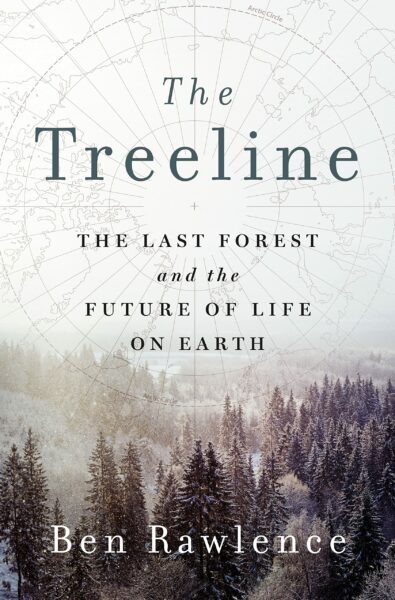As environmental activists have made clear for decades, the preservation of Earth’s forests is essential to the existence of life. And, yet, continued exploitation of this resource and the simultaneous warming of Earth have placed forests in a precarious situation. The boreal forest is one of the largest biomes on Earth, second only to the ocean. However, over the last 50 years boreal forest trees have been migrating further and further north. Put simply, the Arctic is turning green. In The Treeline: The Last Forest and the Future of Life on Earth Ben Rawlence takes readers on a journey, tree by tree, through our rapidly changing forest frontiers.
Rawlence writes with a clearly deep and detailed knowledge of his subjects. His descriptions of tree species are poetic and his personal journeys through the boreal forests is fascinating. Much literature already exists regarding global warming and its effects. Though, generally, it seems that there is little left to be tread on the topic, Rawlence does not struggle to bring new insight to the table. Organized by tree species, Rawlence travels through the Arctic treeline, from Canada to Russia, and intricately describes his travels, sightings, and the implications these hold for the future of the boreal.
Yet, despite Rawlence’s clear passion and depth, I hesitate to consider this a must-read for novices to the topic. Though well-constructed and informed, Rawlence’s writing is often somewhat dense and, at times, inaccessible. Readers passionate about flora species identification and our rapidly changing ecosystems will revel in Rawlence’s attention to detail. Others may find it difficult to connect to the text. However, Rawlence’s intention is clearly not to be esoteric. The Treeline contains beautiful illustrations of native tree species and is organized by geographical area, making mental navigation a bit easier. Ultimately, The Treeline is worth the challenge for those passionate about the topic, but this is by no means a casual read.
Despite a potentially limited audience, The Treeline is certainly a feat for Rawlence. Our moving boreal forests are yet another indication of the way in which our planet will change with an ever-warming climate. Rawlence’s work is essential and The Treeline is yet another piece to be added to the puzzle of written works on climate change. Lined with a sense of hope, Rawlence’s The Treeline is a troubling and beautiful piece of scientific investigation.

Olivia Radbill is an LA-based public librarian and archivist. She is a practicing vegan and animal rights advocate.

